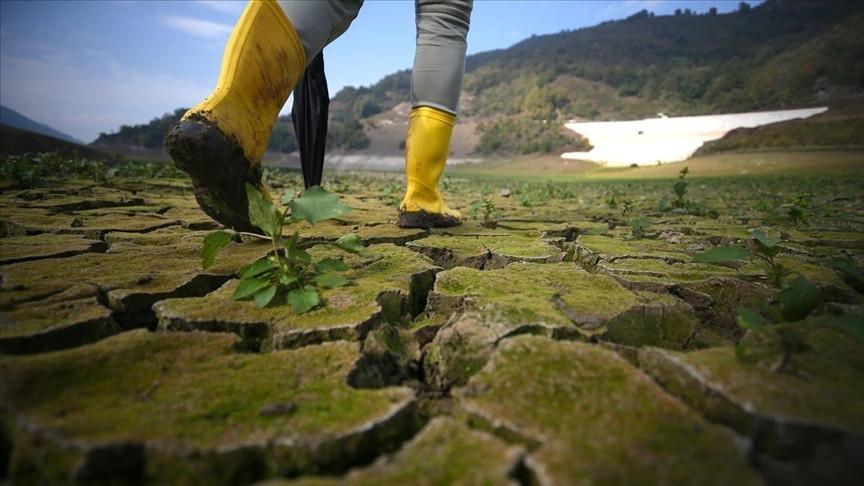
Turkey, which has been experiencing adverse weather conditions for the last two decades, will continue to be in the grip of a bad weather spell due to increasing temperature and climate changes, according to a report by the Turkish Environment and Urbanization Ministry.
“Extreme weather incidents have been on the rise in the country for the last two decades. Only in 2019, some 935 extreme natural incidents occurred,” according to a 2020 environmental report by the Environment and Urbanization Ministry.
According to the report, in 2019, some 36 percent of the extreme weather incidents recorded in Turkey were heavy precipitation and floods, some 27 percent were storms, while some 18 percent were hail incidents.
The rest 5 percent accounts for incidents of heavy snow, 3 percent for landslides and 1 percent for sandstorms, fogs, forest fires and avalanches.
The increase in the average temperature in the country is marked as the main topic of the report.
The report noted that 2019 had been the fourth “hottest year” since 1974.
“The average temperature was 13.2 degrees Celsius between 1971 and 2000. But, it was 13.5 degrees Celsius between 1981 and 2000,” the report stressed, highlighting an increase of 0.3 degrees Celsius.
The report also mentioned estimations for an increase in temperature conditions in Turkey in the future.
“An increase of 1 or 2 degrees Celsius in average temperatures is estimated between 2016 and 2040. Some 1.5 to 4 degrees Celsius of temperature increase is expected between 2041 and 2070,” the report added.
According to the ministry’s latest prediction, there will be an increase in average temperature by 1.5 to 5 degrees between 2071 and 2099
“In some worst-case scenarios, during the last three decades of the 21st century, there can be an increase in temperature by some 3 degrees Celsius in winters and 8 degrees Celsius in summers,” the report said.
The report also highlighted the changes in precipitation that can lead to severe problems and climate changes.
According to the report, due to the rising temperature, in place of snowfalls in winter, the country witnessed rainfalls, filling river basins in Anatolia, further aggravating problems.
Noting the consequences that changes in precipitation could lead to, the ministry said, “With basins of the Tigris and Euphrates rivers taking the lead, some river basins in the Central Anatolia and the southern provinces will witness less precipitation. However, there will be excessive precipitation in the Aegean, Marmara and Black Sea regions which would cause floods.”
The variations in precipitation can also lead to other extreme natural hazards such as aggressive storms, whirlwinds and heavy hail.
The report also covered data concerning the drinkable water and waste management system in the country.
Stating that the loss of the drinkable and usable water networks has reached up to some 37 percent, the ministry said, “Due to this loss, the price of water has increased.”
Regarding waste management, the ministry especially drew attention to the end-of-life tires left out in nature.
“These tires become breeding grounds for mosquitos and mice, causing risk for spread of epidemic illnesses. They also can cause fires that can take up to days before they are put out, and black clouds of smoke emerging from these fires can spread harmful toxic gases into the air,” the report added.